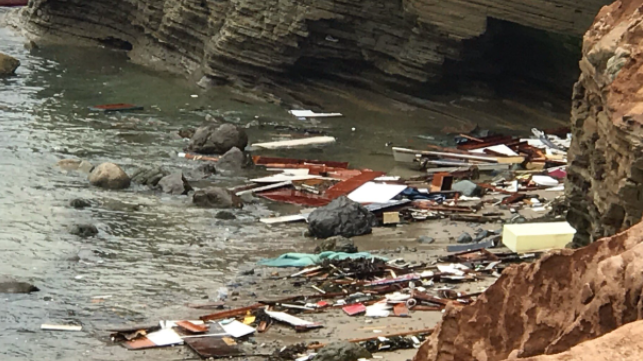Border Patrol Sets Up Marine Unit After Deadly San Diego Sinking

After the disastrous sinking of a smuggling vessel off San Diego in May, the U.S. Border Patrol has set up a new marine unit to monitor the waters off Southern California.
“Transnational criminal organizations are resorting to increasingly dangerous smuggling activities on the high seas,” Chief Border Patrol Agent for San Diego Aaron Heitke told San Diego's local NBC affiliate. "As we have seen in recent events where lives have been tragically lost, these organizations treats smuggled people as a commodity, showing little to no regard to the lives of those they are exploiting for profit."
On May 2, three people were killed and 20 were seriously injured when an overcrowded cabin cruiser went aground on a rocky shore near Point Loma, San Diego. The vessel was allegedly being used to smuggle migrants across the maritime border, and more than 30 people were on board, according to the Border Patrol.
The 40-foot cabin cruiser broke up shortly after grounding, sending all aboard into the water. Three bodies were recovered and 29 people were taken to the hospital, including five who remained hospitalized the day after the casualty.
"Most people were able to walk or swim to the shoreline, but there were six or seven people who just got sucked out in a rip [current] and pulled out to sea," said a San Diego Lifeguard official at a press conference after the rescue.

that matters most
Get the latest maritime news delivered to your inbox daily.
An initial check by U.S. Border Patrol agents revealed that all but one of the people on board were foreign nationals without authorization to enter the United States. The vessel's captain was the sole U.S. citizen aboard, and he was turned over to Homeland Security Investigations for questioning.
The tragic accident highlighted a rising trend in maritime migration and narcotics smuggling off the Southern California coastline. According to the Border Patrol, at-sea interdictions in the region have nearly doubled since FY2018, and the number of migrants apprehended since the start of FY2021 is already nearly as high as the total for all of FY2020 - which was itself a record-setting year for the sector.
